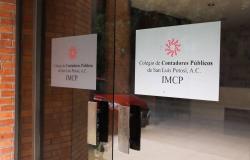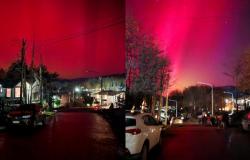Rereading Enrique Lihn’s correspondence with Pedro Lastra is a journey to the personal and non-transferable past and to the collective. In my case, returning to that epistolary dialogue means undergoing a double operation: literary and psychoanalytic. I imagine that something similar must have happened to those who avidly read Proust’s novels because those novels narrated their lives, they had been protagonists or secondary characters, but those stories were his stories, those lives had been his.
In his letters, Lihn tells his friend the daily life of this poet who decided not to go into exile during the years of the dictatorship. Or rather, that he never made the decision to leave permanently. He evokes, with detail, the exhausting task of collecting a few pesos to survive in a country in which the cultural field was buried under the boots, the factions and the gangs. In 1976, he writes: “…The alternative of being imprisoned in the sewer of Chile is too dark. I have just received a letter asking me to renounce part of my measly fees in order to avoid the expulsion of Professor X, who had to be sacrificed for economic reasons. The day after tomorrow I can be the one who indirectly passes the jar if that seems appropriate to Mario Góngora. For years now, miserabilism has been accompanied by the most overwhelming moral and intellectual repression.” He asks for contacts, a course, a workshop, a recital… anything to avoid being trapped in the sewer of Chile.
In that sewer, those of my generation were teenagers, we entered university and literary life. In that sewer many of us were lucky enough to meet Enrique Lihn. Rereading it now, one immediately recovers the feeling of overwhelm and permanent defeat when you are seventeen or twenty years old and live in a place where the word “future” does not exist. For the simple reason that social life (whether you are a doctor, writer or farmer) has been drawn up, planned year after year and generation after generation, even in its most intimate aspects: those of thought and the expression of that thought. Lihn portrays that oppressive, flat and dangerous atmosphere at the same time, typical of any dictatorship, in these letters better than anyone else. “I suspect that you have made the decision not to return to this country, where literature and its respective theoretical assaults endure a fateful existence. Your editorial remains silent like a whitewashed tomb and everything is oriented towards the new stars: Tomás MacHale, Campos Menéndez, Carlos René Correa (…) The death of Jorge Inostroza, as you will understand, has left national literature in mourning.”
To complete the description, add “the world” of the Huasos Quincheros, the Japening with Ja, the highly surreal spectacle of the national team playing a soccer match against no one, that is, against an absent team from the Soviet Union, which refused to come to Pinochet’s Chile. Etc. The point is that Lihn, overwhelmed by all the precariousness and misery, decides to stay in that country from which he cries out to leave. “I always feel a great desire to be kicked out, forced to go abroad,” he writes. And also: “I think I will never really leave Chile.” He is the very model of the “poet of inner exile.” Much more than Parra (who is also staying). But Parra outside of Chile would not be Parra. Lihn “knows” that Chile is lethal and at the same time indispensable to him. “Do you think I miss Chile or something that happens to me there?” He confesses to Lastra from Madrid, in 1987.
Fortunately for us, he stayed, because what “happened to him there”, I dare to guess, was a place in the world, that is, a world, a language to formulate that world (Chilean, which is not the same as Spanish. ) and without a doubt some people… For those of us who began to write “there”, without a doubt Lihn was a kind of guide that made you think that, somewhere, there was a future. That place was writing. Lihn’s poetry is vast and varied; his novels, real jokes and labyrinths. But he is known urbi et orbi for a single poem, whose first stanza says: “I never left the horrible Chile / My trips that are not imaginary / late, yes – moments of a moment – / did not uproot me from the wasteland / remote and presumptuous.” Those of us who left the wasteland, remote and presumptuous, and those who stayed, largely owe him a tortured and erratic feeling of belonging, a unique way of detesting Chile, while loving it.






